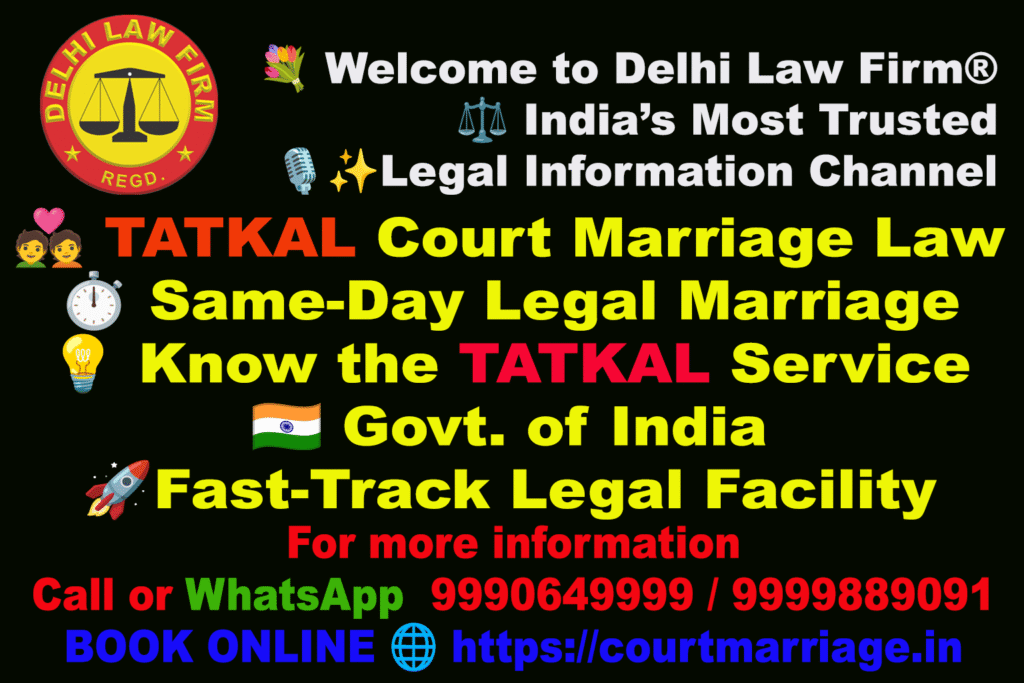Delhi Law Firm® — आपका भरोसेमंद कानूनी साथी, न्याय और कानूनी जागरूकता के लिए पूरे भारत में
🎥 देखें वीडियो:
Delhi Law Firm® में आपका स्वागत है — आपका भरोसेमंद कानूनी साथी, जो पूरे भारत में न्याय और कानूनी जागरूकता के लिए समर्पित है।
आज हम एक अत्यंत महत्वपूर्ण और संवेदनशील विषय पर चर्चा करने जा रहे हैं — झूठे दहेज मामले और सुप्रीम कोर्ट के दिशा-निर्देश, जो निर्दोष पतियों और उनके परिवारों की रक्षा करते हैं।
📜 विषय की पृष्ठभूमि
समय के साथ, भारतीय दंड संहिता की धारा 498A (अब भारतीय न्याय संहिता की धारा 85) — जो पति या ससुराल वालों द्वारा क्रूरता से संबंधित है — का दुरुपयोग एक गंभीर चिंता का विषय बन गया है।
सुप्रीम कोर्ट ने स्वीकार किया है कि कई मामलों में इस कानून का दुरुपयोग निर्दोष लोगों को परेशान करने के लिए किया गया है।
📚 प्रमुख सुप्रीम कोर्ट के निर्णय
1️⃣ Preeti Gupta बनाम State of Jharkhand — कोर्ट ने कहा कि धारा 498A के अंतर्गत कई शिकायतें गुस्से में और बिना सोच-विचार के दर्ज की जाती हैं, जिससे वैवाहिक जीवन और पारिवारिक सामंजस्य नष्ट हो जाता है।
2️⃣ Arnesh Kumar बनाम State of Bihar — कोर्ट ने स्पष्ट निर्देश दिया कि दहेज मामलों में स्वतः गिरफ्तारी नहीं होगी। पुलिस पहले उचित जांच करेगी और फिर कारण दर्ज करेगी।
3️⃣ Rajesh Sharma & Others बनाम State of U.P. — कोर्ट ने सुझाव दिया कि शिकायतों पर कार्यवाही से पहले Family Welfare Committee द्वारा समीक्षा की जाए। यद्यपि बाद में Social Action Forum for Manav Adhikar बनाम Union of India में इसे संशोधित किया गया, पर कोर्ट ने झूठे मामलों पर रोक की आवश्यकता दोहराई।
4️⃣ K. Subba Rao बनाम State of Telangana — कोर्ट ने कहा कि झूठी दहेज शिकायत कानूनी प्रक्रिया का दुरुपयोग है और ऐसे मामलों को धारा 482 CrPC (जहाँ कोई प्रथम दृष्टया साक्ष्य नहीं है) के अंतर्गत रद्द किया जा सकता है।
🛡️ झूठे मामलों में निर्दोष पतियों के लिए कानूनी उपाय
1️⃣ केस रद्द (Quashing)
यदि आरोप बेबुनियाद हैं, तो उच्च न्यायालय में धारा 482 CrPC (नई धारा 532 BNSS) के तहत याचिका दायर कर केस रद्द कराया जा सकता है।
2️⃣ मानहानि (Defamation)
यदि झूठे आरोपों से आपकी प्रतिष्ठा को नुकसान पहुँचा है, तो धारा 499–500 IPC (नई धारा 354–355 BNS) के तहत मानहानि का मुकदमा दायर किया जा सकता है।
3️⃣ मुआवज़ा (Compensation)
यदि किसी झूठे मुकदमे के कारण आर्थिक या मानसिक हानि हुई है, तो धारा 250 CrPC (नई धारा 358 BNSS) के तहत मुआवज़े का दावा किया जा सकता है।
🧭 व्यावहारिक सलाह
- शांत रहें और हर कदम कानून के अनुसार उठाएँ।
- सभी दस्तावेज़, कॉल रिकॉर्ड, चैट, ईमेल और सबूत सुरक्षित रखें।
- सोशल मीडिया पर टिप्पणी करने से बचें और अपने वकील की रणनीति पर अमल करें।
- याद रखें — न्याय में समय लग सकता है, लेकिन सच्चाई हमेशा जीतती है।
⚖️ सुप्रीम कोर्ट का रुख
सुप्रीम कोर्ट का स्पष्ट मत है —
“कानून का उद्देश्य पीड़ितों की रक्षा करना है, निर्दोषों को दंडित करना नहीं।”
कानून में ऐसे प्रावधान हैं जो असली मामलों में न्याय सुनिश्चित करते हैं और झूठे मामलों को रोकते हैं, ताकि न्याय व्यवस्था में संतुलन और निष्पक्षता बनी रहे।

📞 कानूनी सहायता के लिए संपर्क करें
यदि आप या आपका कोई परिचित झूठे दहेज मामले का सामना कर रहा है, तो घबराएँ नहीं — कानूनी रूप से कार्यवाही करें।
Delhi Law Firm® Legal Helpline:
📱 9990649999 | 9999889091
🌐 www.delhilawfirm.in
⚠️ अस्वीकरण (Disclaimer)
यह लेख केवल कानूनी जागरूकता के उद्देश्य से लिखा गया है। किसी भी विशेष केस में कानूनी राय योग्य अधिवक्ता से सभी दस्तावेज़ों सहित प्राप्त करें।
© 2025 Delhi Law Firm® — कानूनी जागरूकता श्रृंखला (Legal Awareness Series)







